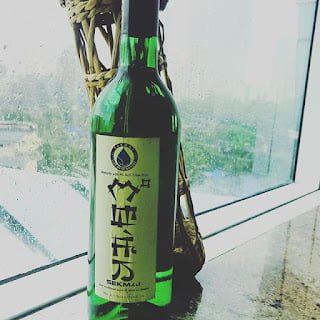Chief Minister N Biren’s vision for legalising alcohol in Manipur will encourage more wine entrepreneurs in the State. The alcohol business is a booming market in India. The wine market share in India is expected to increase by USD 274.00 million from 2021 to 2026. Every one of us agrees that Manipur can earn revenue from Tourism and Wine only. We don’t have Mica, Coal, Iron ore and other natural resources which can generate revenue and job opportunities for our youths.
A look at the data of some Indian states shows that alcohol is a money-minting source, in fact, the third largest revenue source after GST and value-added taxes. Uttar Pradesh earn more than Rs 31,500 crore as excise revenue which is 22% of its tax revenue in 2020. This is somewhat close to the total Manipur budget of Rs 34,930 crore for the present fiscal year 2022-23. Karnataka earns Rs 20,950 crores from excise revenue, Madhya Pradesh earns Rs 13,000 crores respectively.
Our neighbour Assam earns Rs 1,321.47 crore last year, each month getting an average of Rs 100 crores. Arunachal Pradesh also earns Rs 70-80 crore per month from the Excise.
Chief Minister N Biren’s stand on lifting the prohibition of Indian Made Foreign Liquor and legalising in the State is a wise move for boosting the economy of the State. For states like Manipur which have limited natural resources and depend on the Centre for financial support, legalising the sale and manufacture of alcohol is good news. Many people have agreed with CM N Biren’s decision while they are afraid to express their views in public.
Biren was quoted saying Manipur would be adding Rs 600-700 crores annually from the sale of alcohol in the State. When there is alcohol, there will be booming tourism industry as well. In the early 1980s, Manipur used to earn annual revenue amounting to around Rs 40 crore from the 65 foreign liquor shops and three bonded warehouses.
The present Biren-led government must promote local traditional alcohol from Sekmai and Andro. The Goan Feni was recognised as State Heritage Drink by the Goa government in 2016 and the Cashew Feni of Goa is also the first indigenous liquor to get a Geographical Indication tag in 2009.
Currently, Sekmai, Chakpa Phayeng or Andro yoo is available at Rs 100 per 1 litre bottle while the Goa government has hiked their Feni to Rs 230-250 per litre.
Several wine entrepreneurs from the Northeast states are getting into the National limelight. Some of them were rewarded by the Government. Just by brewing Jamun wine, Nashik based Komal Somani is earning Rs 4.5 crores every year. Even Lucy Ngulie from Nagaland is selling red and white variety of Dragon fruit wine priced at Rs 1100 per bottle.
Tage Rita Takhe’s Kiwi wine from Arunachal Pradesh is earning an annual turnover of Rs 10-12 crore. She was also nominated for the prestigious 2022 Fortune–U.S. Department of State Global Women’s Mentoring Partnership, a mentoring programme that will take place in Washington, D.C. We must also make a way for our wine entrepreneurs from Sekmai, Phayeng, Andro, Senapati and Ukhrul.
Our State is abundant with Mao Heikha, Senapati Sitafal, Kachai Champra, and Waikhong Kamfoi which can be an excellent variety of wines from Manipur. Chakhao wine will be another surprise in the International wine market. Several horticultural fruits like Kiwi, Dragon Fruits and Plume are also successfully produced in the state. We can promote wine entrepreneurs, and provide them with funding in Start-Ups and Stand Ups schemes of the government. These wine entrepreneurs will provide sustainable job opportunities to our youths.
Demeaning the prospect of alcohol and wine industries in the state, few civil society organisations are expressing their concern for society and future generations. They were irked with the Chief Minister’s plan to legalise alcohol in the State. It is the responsibility of the government to pass strict laws to control alcohol abuse in the days to come.
Instead of challenging the government policy for the development and growth of the State, all stakeholders must support the policy. For generations, Kangkhulong, Sekmai, Andro and Phayeng and other Loi villages are manufacturing alcohol and the people are moving forward. Some of the villagers are in high government official posts, leading a comfortable lifestyle.
It is wrong to be a pessimist that alcohol will ruin Manipur and future generations. Sikkim is an example!

